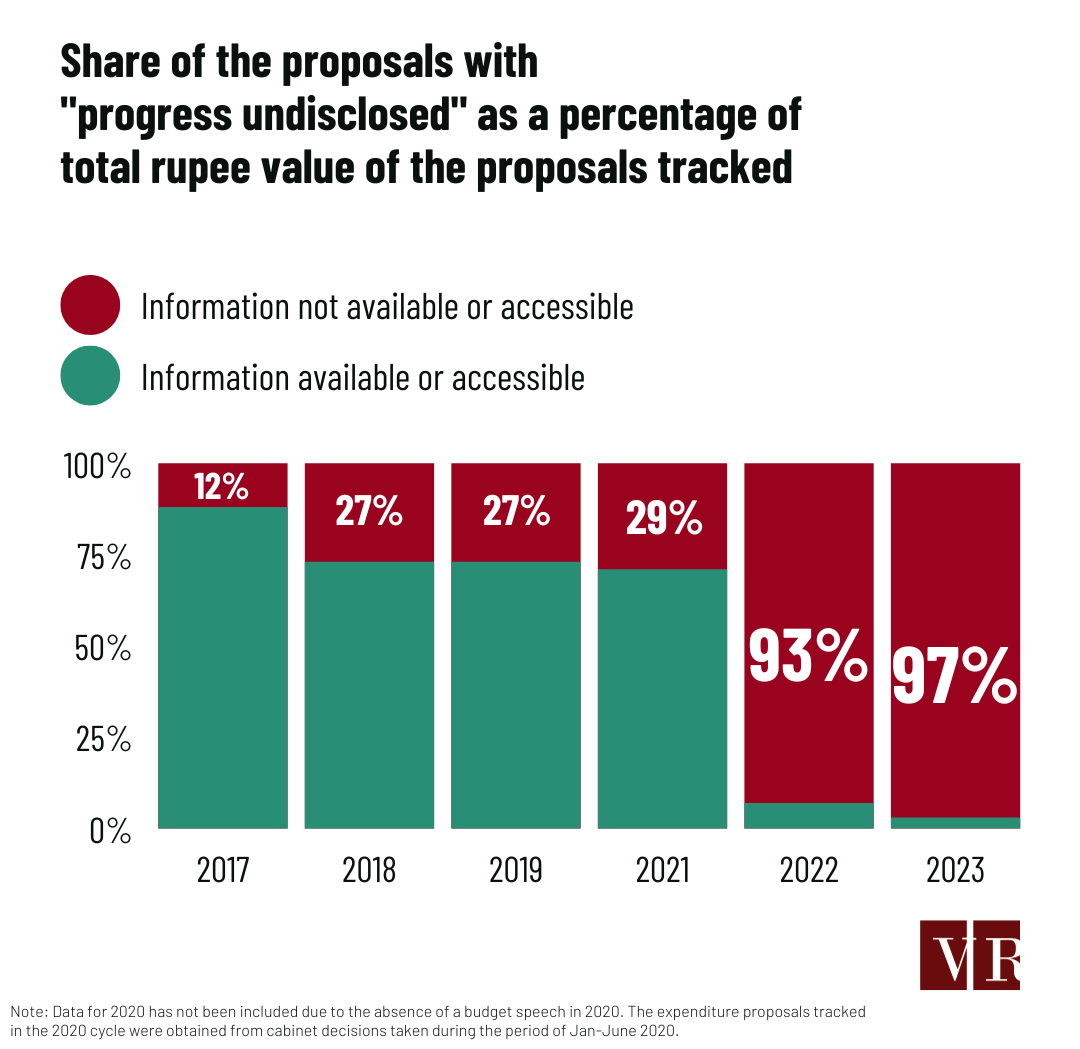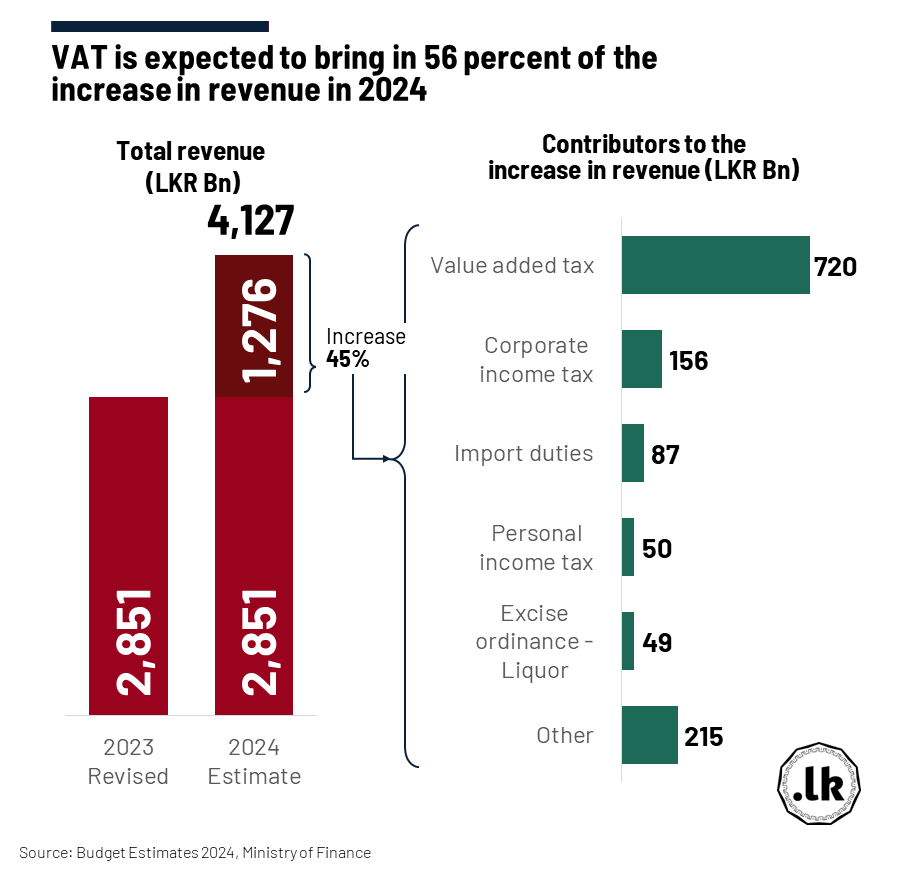Sri Lanka is working to address lasting financial challenges that sprung from the most severe economic and governance crisis the country has faced since gaining independence in 1948. Following through on the commitments made in its 2024 budget will prove to be a crucial step in that process.
Fiscal transparency in Sri Lanka has declined drastically in recent years, and that’s led to increased scrutiny from constituents and civil society organizations on its public financial management system. In Sri Lanka, CIPE has worked with local partners such as Verité Research to support oversight and accountability in public finance and to inform public finance policy with evidence-based advocacy. Verité’s recent analysis found a lack of transparency in Sri Lanka’s budget implementation processes, as well as questionable revenue targets and assumptions in the latest budget.
Background
Public engagement has proven critical to promoting oversight and accountability in Sri Lanka. From March 2022 to July 2022, tens of thousands of Sri Lankans from all ethnic and religious backgrounds engaged in mass protests to demand the resignation of the government, led at the time by the brothers President Gotabaya Rajapaksa and Prime Minister Mahinda Rajapaksa. Known as the ‘Aragalaya’ Movement, the protests focused on corruption and the government’s mishandling of the economy. These systemic issues have led to high inflation, significant shortages in essential items, and the state defaulting on its foreign debt for the first time. Many government officials resigned in the wake of these protests, including the Rajapaksa brothers.
In March 2023, the IMF board approved a $3 billion loan under a 48-month extended fund facility (EFF) arrangement for Sri Lanka, which provides financial assistance and supports a comprehensive program of structural reforms. The EFF arrangement aims to “restore Sri Lanka’s macroeconomic stability and debt sustainability, mitigate the economic impact on the poor and vulnerable, safeguard financial sector stability, and strengthen governance and growth potential.” To date, about $670 million of the EFF has been disbursed to Sri Lanka. Full disbursement is contingent on progress towards the program commitments. That includes ensuring that budgets are consistent with the program’s criteria and that needed revenue measures will be carried out in a timely manner.
Verité’s mid-year assessment of the 2023 budget, published on its Budget Promises dashboard, shows a declining trend in transparency around the implementation of expenditure proposals announced by the Minister of Finance in his budget speech. That trend includes a large jump in proposals from 2022 without usable information, as seen in Figure 1 below. On a regular basis, the government did not proactively disclose information online nor in response to requests filed under the Right to Information Act, No. 12 of 2016. Fiscal transparency and governance reform are essential for the country’s economic recovery, a reality which is highlighted in several recommendations of the IMF’s Governance Diagnostic Assessment on Sri Lanka and a Civil Society Governance Diagnostic Report on Sri Lanka. Despite the demand for improved government transparency and fiscal management, the findings reflect that the trend is moving in the opposite direction.

Budget Challenges
In presenting the 2024 Budget in Parliament on November 13, 2023, President Ranil Wickremesinghe faced the dual challenges of maintaining public support and meeting IMF obligations to pave the way for the second tranche of IMF funds, worth about $337 million. They were ultimately disbursed in December 2023. The government’s approval rating was at a low of 9 percent in October 2023, compared to 21 percent in June of the same year, and presidential elections are set to take place in 2024. Against this backdrop, the presented budget included increased cost-of-living allowances for public sector employees, public pensioners, people with disabilities, and senior citizens, as well as ambitious tax revenue goals. In the budget, there was no clarity on how the government aims to increase the extra revenue.
The IMF objective of raising revenue equivalent to 12 percent of the GDP is met in the 2024 Budget projections, with revenue expected at 13.1 percent of GDP in 2024. However, it is not clear that these projections will be realized. According to Fitch Ratings, a global provider credit ratings for governments and companies, there are significant risks plaguing the government’s revenue goal for 2024 and management of a wider budget deficit. When expounding on its assessment, the organization pointed to Sri Lanka’s record of fiscal slippage and projected weaker inflation-driven revenue growth. And looking back at recent history, Sri Lanka has not achieved a revenue target in 32 years.
“This is a pattern historically in Sri Lanka,” said Nishan De Mel, executive director at Verité Research, speaking at KPMG Sri Lanka’s 2024 Budget Forum. “We are addicted to missing revenue targets to 12 percent on average, and for 2023 it will be around 15 percent.” Missing targets puts the IMF EFF disbursements at risk, as seen when the second tranche of IMF funding was severely delayed, partly due to the shortfall in meeting the set revenue targets. According to Raj Rajakulendran, Verité Research’s lead economist, the 2023 revenue shortfall was compensated for by reducing capital expenditure to try to meet the budget deficit target.
For Sri Lanka to recover from the crisis, stronger domestic revenues are necessary. The IMF’s recent review considers tax revenues a key priority. The government’s plan to increase revenue is heavily dependent on value-added tax (VAT), which was increased from 15 percent to 18 percent this month – plans which were revealed before the budget speech – marking the highest VAT rate in two decades. About 56 percent of the revenue increase is expected from VAT, a consumption tax, as demonstrated by Figure 2 below. Additionally, the practice of offering VAT exemptions have been eliminated other than for products relating to education, health, and specified essential foods.

Historically, 5 percent of GDP is budgeted for capital expenditures, but just 4 percent is spent, creating a buffer. Capital expenditure in the 2024 budget amounted to 3.9 percent, which may reduce any potential buffer. While high levels of inflation allow more tax revenue to be collected, the Central Bank predicts that inflation will settle around 5 percent in 2024.
Recommendations and Outlook
Fiscal transparency and accountability are critical for sustainable economic recovery. For Sri Lanka to move in this direction and away from falling into a vicious cycle of multiple debt restructurings, a credible growth strategy and fundamental reforms are necessary. Expert opinions from multiple stakeholders should also be included when formulating fiscal policies and targets.
Scrutinizing and tracking the implementation of Sri Lanka’s fiscal plans will enable the public sector, private sector, and civil society to hold the government accountable. Krishna Srinivasan, Director of the Asia and Pacific Department at the IMF, concluded in a May 2023 press briefing in Sri Lanka that “the IMF-supported program is an opportunity for all Sri Lankans to come together to work through this crisis, to restore economic stability, and to put the country on a sustainable growth path.”
Accessible and credible information on public finance and governance can empower all Sri Lankans to come together. This year, CIPE will continue its important work of supporting local partners to gather, organize, and present such information in clear language and formats that promote transparency and accountability.
Published Date: February 12, 2024
